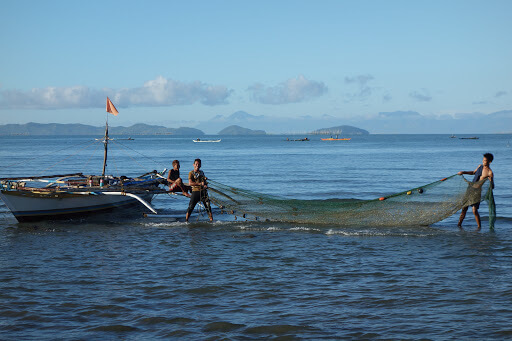Members of the World Trade Organization (WTO) inched closer towards finalising an agreement that would “set new rules for the global fisheries industry and limit government subsidies contributing to unsustainable fishing and the depletion of global fish stocks” during a virtual ministerial meeting on subsidy negotiations on Thursday.
However, India was sceptical about the deal and expressed concerns that such a move would negatively affect the livelihoods of fishermen in developing countries.
The WTO stated that members “pledged to conclude the negotiations” before the 12th WTO Ministerial Conference (MC12) in Geneva in December and agreed to use the current negotiating text as the basis for a final deal. “In 20 years of negotiations, this is the closest we have ever come towards reaching an outcome—a high-quality outcome that would contribute to building a sustainable blue economy,” WTO Director-General Ngozi Okonjo-Iweala said.
Developed countries in the trade bloc have argued that fisheries subsidies, which cost tens of billions of dollars annually, result in significant distortions in the global fishing industry and contribute to unsustainable fishing practices like overfishing and the depletion of fish stocks. The Washington Post mentioned that experts believe such an agreement would be a “triple win” for trade, development, and the environment.
In this regard, United States (US) Trade Representative Katherine Tai stressed the need for a “meaningful outcome” to the ongoing negotiations. Tai affirmed the US’ commitment “to working together with all WTO Members to finally conclude these longstanding negotiations” and added that “our work is not yet done, as other key elements are still missing.” Speaking on the “serious problem” of forced labour in the fisheries sector, Tai said, “It is a practice that affects economic competition; it is an unfair trade practice and an unconscionable exploitation.” She urged the WTO to include the provision of forced labour in the final agreement.
On the contrary, India opposed such a deal, arguing that subsidies provide a lifeline for low-income and resource-poor fishermen in developing countries. Indian Commerce and Industry Minister Piyush Goyal said that the WTO “is still short of finding the right balance and fairness in the agreement.” He noted that the bloc “should not repeat the mistakes made during the Uruguay Round three decades ago that allowed unequal and trade-distorting entitlements for select developed country [that] unfairly constrained less developed members, who did not have the capacity and resources to support their industry or farmers then.”
Addressed the Trade Negotiations Committee at Ministerial Level on Fisheries Subsidies today at @WTO.
— Piyush Goyal (@PiyushGoyal) July 15, 2021
Highlighted India’s stance and PM @NarendraModi Ji’s commitment to promote the country's fishing sector while protecting our poor & artisanal fishermen.https://t.co/Bd1XqooWNA pic.twitter.com/aipgpvQP5R
While Goyal stated that India is “very keen to finalise” an agreement, as overfishing negatively affects Indian fishermen too, he argued: “Limiting Special and Differential Treatment (S&DT) to poor and artisanal fishermen only is neither appropriate nor affordable and is not acceptable. S&DT is required to not only protect [the] livelihoods of poor fishermen but also to address food security concerns.” According to the WTO, S&DT provisions are meant to “give developing countries special rights and allow other members to treat them more favourably.”
Several members of the WTO, including China and India, have opposed calls made by developed countries for the elimination of fisheries subsidies. Negotiations on the issue began in 2001 at the Doha Ministerial Conference with a mandate to “clarify and improve” existing WTO provisions on fisheries subsidies. In the 2017 Ministerial Conference, members agreed to conclude negotiations by the next conference in Geneva in 2021.

